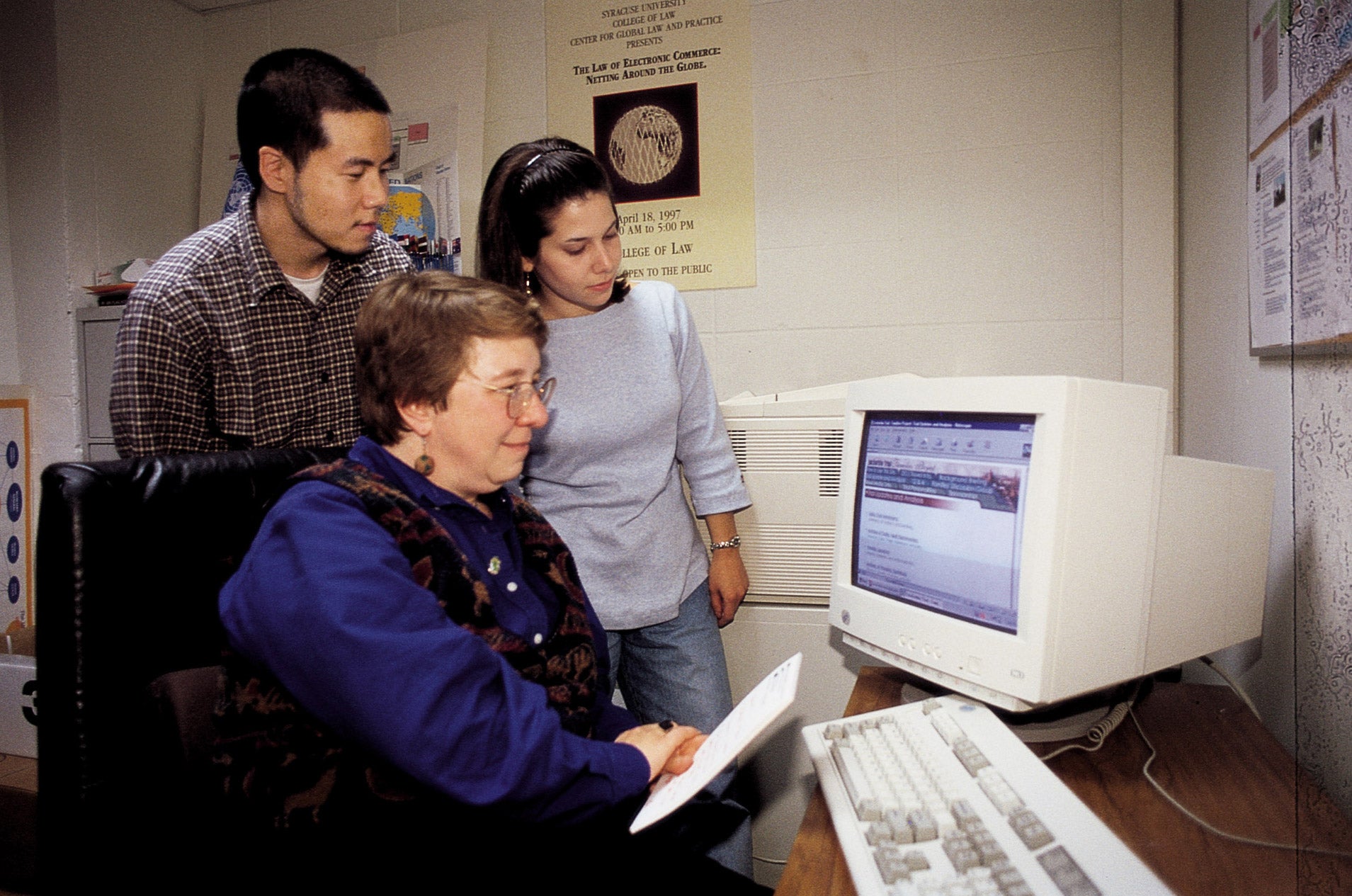Donna Arzt ’79 remembers exactly where she was in 1988 when she heard that Pan Am Flight 103 had exploded over Lockerbie, Scotland. Arzt and her colleagues at Syracuse University were closer than most to the tragedy. It was Arzt’s first year as a law professor at Syracuse, and with 35 Syracuse undergraduates on board Flight 103, the knowledge that the blast left no survivors cast a pall over the campus.
In the 12 years since the explosion, the Syracuse community and the families of the 270 victims have continued to grieve. Recently they were given hope of obtaining some justice, when two Libyans accused of planting a bomb on board the plane went on trial.
In order to extradite the suspects and bring them to trial, however, the U.S. government had to agree to hold the proceedings in the Netherlands, a neutral location. The defendants are being tried under Scottish law because the alleged crime occurred over Scottish soil.
Although relieved that the suspects would be tried, many of the victims’ families feared they wouldn’t be able to follow the proceedings because they were so far away and unfamiliar with Scottish law. Enter Arzt, a professor of international law and director of the Center for Global Law and Practice at Syracuse. She has followed the case closely and uses the lengthy legal efforts to bring the alleged bombers to trial as a teaching tool.
In 1998, just before the tenth anniversary of the bombing, Arzt created a syllabus on the Web for her students and realized that a Web site with information on the upcoming trial could be invaluable to the victims’ families. At the time, several family members were discussing the idea with the U.S. Justice Department, which asked Arzt to develop a site to serve as both a memorial to the victims and a source of information on the upcoming trial.
As director of the Lockerbie Trial Families Project, Arzt translates Scottish legalese into laymen’s terms—crucial to families who want to understand the process. But she also understands the importance of supporting the families in person and occasionally meets with some of them in New York City to monitor the trial’s progress on a closed-circuit television provided by the U.S. government.
The trial, which began in May, is expected to last more than a year. Arzt said the families have a long ordeal ahead of them. Even if the suspects are found guilty, they will probably appeal the verdict, she said. But unlike many observers who will tune in to the trial only for its most dramatic moments, Arzt knows how crucial her role as information conduit is and intends to pay close attention to all of the details, whether they are gripping or tedious.
“We knew most of the media would disappear after the first week,” Arzt said. “But we are in fairly close contact with the Syracuse families, and they know we’ll be there through this.”
